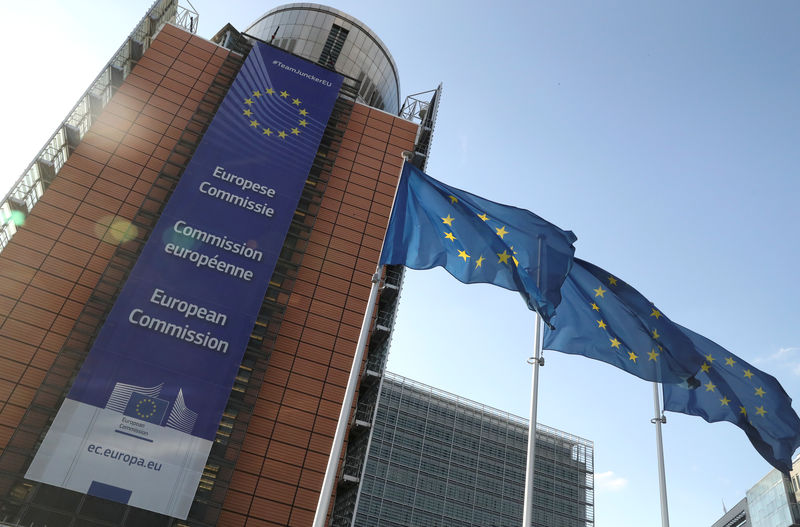BRUSSELS (Reuters) - The European Commission lowered its forecast on Wednesday for the euro zone economy next year, saying that uncertainty over U.S. trade policy posed a major risk to the bloc.
In its quarterly economic forecasts, the European Union's executive arm also lowered its estimate for inflation in the bloc, predicting that it would be further off the European Central Bank's target of close to but less than 2%.
The commission confirmed its prediction that economic growth in the euro zone would slow this year to 1.2% from 1.9% in 2018. It also lowered its estimate for next year's growth, which is now seen at 1.4% instead of the 1.5% forecast in May.
Risks for the bloc have increased, the commission said, and mostly come from "the elevated uncertainty" around U.S. trade policy, as Washington keeps threatening punitive tariffs on a broad range of EU products.
The weaker economic outlook contributed to a downward revision of inflation expectations, the commission said, cutting its estimate to 1.3% for this year and next from the 1.4% it previously estimated for both years.
This year's forecast matches the ECB's projection, but for 2020 the commission's estimate is lower than the 1.4% rate forecast by the central bank in its latest projections, released in June. That could give the ECB a reason to push ahead with fresh stimulus.
ITALY, GERMANY LAG BEHIND
The commission confirmed the economic slowdown in the euro zone was mostly caused by slower growth in Germany, the euro zone's largest economy, and Italy, its third largest.
German growth will slow to 0.5% this year, it predicted in May, after reaching 1.4% in 2018. Growth is expected to return to 1.4% next year, less than the 1.5% the commission predicted earlier.
Forecasts for Italy remained unchanged, reiterating its economy will see the worst growth rate in the whole 28-country EU. Next year's growth is expected to accelerate to 0.7% but remain the slowest in the bloc.

The commission maintained unchanged its forecasts for Britain, whose economy is foreseen growing 1.3% this year and next. However, the projection does not take into account possible trade disruptions caused by a no-deal Brexit.